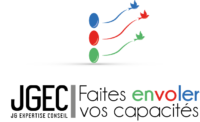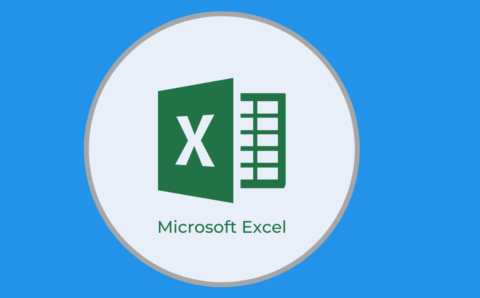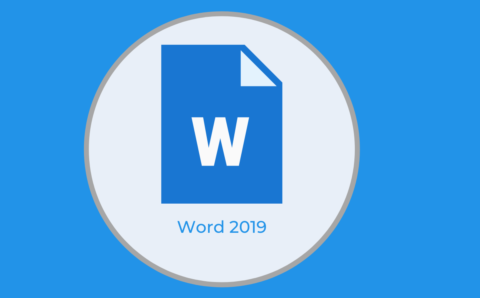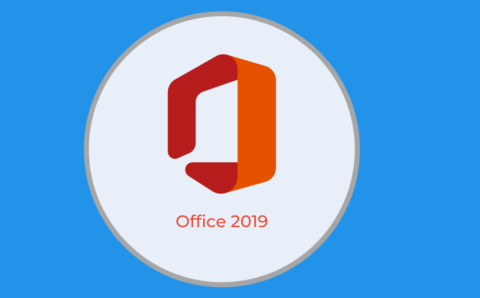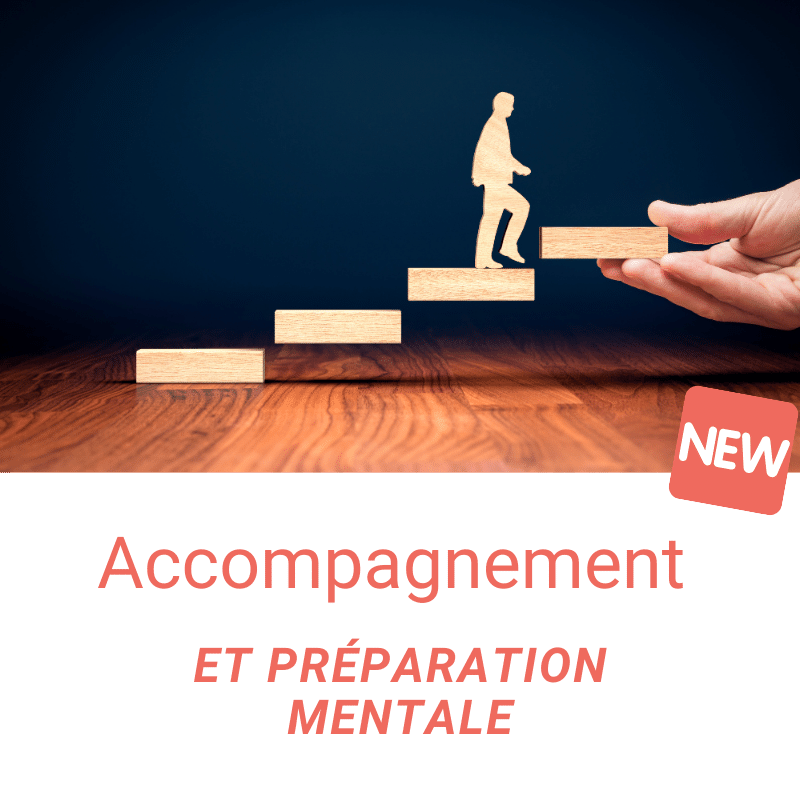Pack: Reflex’Anglais
avril 12, 2021 2022-09-06 13:22Pack: Reflex’Anglais
Pack: Reflex’Anglais
-
Reflex'english grand débutant (A1/A1+)
- Unit 1 – Saying hello and goodbye / Bonjour – au revoir
- Unit 1 – Introducing yourself / Se présenter
- Unit 1 – Asking about names and nationalities / Prénom, nom, nationalité – questions
- Unit 1 – Talking about where you live / Où habitez-vous ?
- Unit 1 – Talking about what languages you speak / Quelles langues parlez-vous ?
- Unit 1 – Numbers from 0 to 10 / Nombres de 0 à 10
- Unit 1 – Personal pronouns / Pronoms personnels
- Unit 1 – Yes and no / Oui et non
- Unit 1 – Basic questions / Questions simples
- Unit 1 – In case of an emergency / En cas d’urgence
- Unit 1 – Hello and goodbye / Bonjour et au revoir
- Unit 2 – Directions : Lesson 06 – Where are you going?
- Unit 2 – Directions : Lesson 06 – Do you know the way?
- Unit 2 – Asking about people and things / Questions à propos des personnes et des objets
- Unit 2 – Asking about jobs and nationalities / Questions à propos des métiers et des nationalités
- Unit 2 – Accepting proposals / Accepter des propositions
- Unit 2 – Positive and negative statements / Phrases affirmatives et négatives
- Unit 2 – Definite and indefinte pronouns the/a / Les articles défini et indéfini the/a
- Unit 2 – Your family and you / Votre famille et vous
- Unit 2 – Your home / Votre maison Plans / Projets
- Unit 2 – Interests / Centres d’intérêt
- Unit 2 – Education and occupation / Education et métier
- Unit 3 – Means of transport / Moyens de transport
- Unit 3 – Shops and public places / Magasins et lieux publics Asking about directions / Demander son chemin
- Unit 3 – Answers to questions about place with this/that / Répondre aux questions sur le lieu avec this/that
- Unit 3 – Questions with do/does and have/has got / Questions avec do/does et have/has got
- Unit 3 – City transport (bus / coach, underground, taxi) / Transports en commun (bus, métro, taxi)
- Unit 3 – Train / Train
- Unit 3 – Car (petrol station, breakdown, accident) / Voiture (stationservice, panne, accident)
- Unit 3 – On the border / A la frontière
- Unit 3 – Plane / Avion
- Unit 4 – A meal in a restaurant / Un repas au restaurant Cooking / Cuisiner
- Unit 4 – Future tense expressions with will / Le futur avec will
- Unit 4 – Describing amounts using some and any / La quantité avec some et any
- Unit 4 – Cardinal and ordinal numerals / Les nombres cardinaux et ordinaux
- Unit 4 – Personal and possessive pronouns / Pronoms personnels et possessifs
- Unit 4 – Before you order / Avant la commande
- Unit 4 – Ordering your meal / Passer commande
- Unit 4 – Ordering drinks and desserts / Commander les boissons et les desserts
- Unit 4 – Conversations / Conversations
- Unit 4 – Complaints / Réclamations
- Unit 5 – Describing people / Décrire les gens
- Unit 5 – Talking about jobs / Parler des métiers
- Unit 5 – Talking about nationalities / Parler des nationalités
- Unit 5 – Shops and public places / Magasins et lieux publics
- Unit 5 – How to prepare a meal / Comment préparer un plat
- Unit 5 – Getting information via the telephone / Se renseigner via le telephone
- Unit 5 – Hotel reservation / Réservation d’hôtel
- Unit 5 – Calling a taxi / Appeler un taxi
- Unit 5 – Emergency phone calls: Police, Ambulance / Appels d’urgence : Police, Ambulance
- Unit 6 – Talking about plans and needs / Parler des projets et des besoins
- Unit 6 – Advice, orders, proposals and protests / Conseils, ordres, propositions et protestations
- Unit 6 – Expressing interest using questions / Exprimer son intérêt à l’aide de questions
- Unit 6 – Money exchange, cashing cheques / Changer de l’argent, encaisser des chèques
- Unit 6 – Cardinal and ordinal numbers / Nombres cardinaux et ordinaux
- Unit 6 – Dates, meetings, events / Dates, réunions, événements
- Unit 6 – Money / Argent
- Unit 6 – Cheques, credit cards / Chèques, cartes de crédit
- Unit 6 – Money exchange / Change
- Unit 6 – Letters, postcards and other mail / Lettres, cartes postales et autres courriers
- Unit 6 – Telephone / Téléphone
- Unit 7 – Journey / Voyage
- Unit 7 – Getting information in a hotel / Se renseigner à l’hôtel
- Unit 7 – Room reservation / Réserver une chambre
- Unit 7 – Describing people and things / Description des personnes et des objets
- Unit 7 – Complaints and questions about the room service / Réclamations et plaintes
- Unit 7 – Present Perfect tense / le Present perfect
- Unit 7 – Looking for accommodation / A la recherche d’un logement
- Unit 7 – Hotel / Hôtel
- Unit 7 – Youth hostel / Auberge de jeunesse
- Unit 7 – Camping / Camping
- Unit 7 – Getting information about the area / S’informer sur la région
- Unit 8 – Shopping / Achats
- Unit 8 – Asking for the price / Demander le prix
- Unit 8 – Days of the week / Les jours de la semaine
- Unit 8 – Health / Santé
- Unit 8 – Making an appointment / Prendre rendez-vous
- Unit 8 – Expressing preferences / Exprimer ses préférences
- Unit 8 – Asking for the time / Demander l’heure
- Unit 8 – Past Simple and Present Perfect / Passé simple et Present perfect
- Unit 8 – At the chemist’s / A la pharmacie
- Unit 8 – Services (photographer, hairdresser) / Services (photographe, coiffeur)
- Unit 8 – Clothes, shoes and accessories / Vêtements, chaussures et accessoires
- Unit 8 – At the newsagent’s / Chez le marchand de journaux
- Unit 8 – Food / Nourriture
- Unit 8 – At the supermarket / Au supermarché
- Unit 9 – Planing a trip and making reservations / Planifier un voyage et effectuer des réservations
- Unit 9 – Getting information in a tourist office / Obtenir des informations à l’office du tourisme
- Unit 9 – Expressing wishes / Exprimer ses souhaits
- Unit 9 – Describing plans and intentions / Décrire ses projets et intentions
- Unit 9 – Negative statements / Phrases négatives
- Unit 9 – Time expressions / Expressions temporelles
- Unit 9 – Criticising / Critiquer
- Unit 9 – Describing past event / Décrire des événements du passé
- Unit 9 – Past Simple tense / Le Past Simple
- Unit 9 – Television / Télévision
- Unit 9 – On the beach / A la plage
- Unit 9 – In the city / En ville
- Unit 9 – Parlour games / Jeux de société
- Unit 9 – Summer holidays / Vacances d’été
- Unit 9 – Winter holidays / Vacances d’hiver
- Unit 9 – Cinema and theatre / Cinéma et théâtre
- Unit 10 – Talking about yourself and the others / Parler de soi-même et des autres
- Unit 10 – Shopping / Achats
- Unit 10 – Hotel / A l’hôtel
- Unit 10 – Questions and answers / Questions et réponses Time expressions / Expressions temporelles
- Unit 10 – Describing a sequence of actions / Décrire une suite d’actions
- Unit 10 – Dates / Dates
- Unit 10 – Time expressions: the past / Expressions temporelles : le passé
- Unit 10 – Time expressions: the present / Expressions temporelles : le présent
- Unit 10 – Time expressions: the future / Expressions temporelles : le futur Asking the time / Demander l’heure
- Unit 10 – Days of the week, seasons / Jours de la semaine, saisons
- Unit 10 – Holidays / Jours fériés et fêtes
-
Reflex'English Level 1 - Débutant (A2)
- Lesson 1 – Starting out – Singular personal subject pronouns, Plural personal subject pronouns, To be in simple present: affirmative and contracted form
- Lesson 2 – Are you English? To be + nationality, To be from + country, To come from + country, Countries, Nationalities
- Lesson 3 – To be… : To be in the simple present: affirmative contracted form, To be in the simple present: negative form, To be + adjectives, The alphabet, Countries, Everyday adjectives
- Lesson 4 – …or note to be: To be in the simple present – negative form: contraction of the verb, To be in the simple present – negative form: contraction of not, To be in the simple present: interrogative form, To be from: country/city of origin, The United Kingdom (UK) – Le Royaume-Uni
- Lesson 5 – Starting out: Review and Test of Lessons 1 to 4
- Lesson 6 – What’s your name? Possessive adjectives, Questions with what, Asking for someone’s name, Giving one’s name, Asking questions, Negative sentences in the simple present, To have got in the simple present, Simple present: negative and interrogative forms
- Lesson 6 – Vocabulary : Family, Nationalities, Names
- Lesson 7 – Numbers : Grammar : Numbers from 0 to 20, from 20 to 100, after 100, Hundred, thousand, million, 1st, 2nd, 3rd, 4th, 5th… 100th, Particular forms
- Lesson 7 – Numbers : Vocabulary : Calculations, the four basic operations, Around numbers, Around first, second and third, Indeterminate quantities
- Lesson 8 – Other numbers: Grammar: After 100th, after 1000th, Fractions, Decimal point, comma, Zero, nought, oh, Percentages, Phone numbers, Years
- Lesson 8 – Other numbers: Vocabulary: Phrases with percentages and fractions
- Lesson 9 – Days, months and seasons : Grammar: Simple present, To be in the simple past, Time expressions with this, next, last
- Lesson 9 – Days, months and seasons : Vocabulary: Days of the week, months of the year, seasons, Phrases with work and day, Around time, Around “to begin” and “to end”, Temperatures (weather), Some important dates in the year (Christmas, Easter)
- Lesson 10 – Test lessons 6 to 9 : Review and Test of Lessons 6 to 9
- Lesson 11 – Hello and goodbye: Grammar: Good and bad (irregular adjectives)
- Lesson 11 – Hello and goodbye: Vocabulary: Greetings at different times, Saying « hello »: first greetings, friendly greetings, formal greetings, polite greetings, Saying « goodbye »: informal goodbyes, polite goodbyes, Around soon and late, Around please and nice, Around friend and fine
- Lesson 12 – My favourite colour: Grammar: Regular adjectives: comparative and superlative forms, Open and closed questions.
- Lesson 12 – My favourite colour: Vocabulary: Colours, Around the weather, Traffic lights in England, Hair, 2D and 3D Shapes, Around “other”
- Lesson 13 – Date of birth: Grammar: Asking for someone’s age, Personal object pronouns, Writing a date, “To be” in the simple past and the simple future, Date of birth, Prepositions “on, in, at”
- Lesson 13 – Date of birth: Vocabulary: Saying one’s age, Saying your date of birth, Numbers, days and months
- Lesson 14 – The time: Grammar: Asking and telling the time, In and at to specify a moment, The time: past, to, exact time, Adjectives used with time phrases, Just in time + to/for
- Lesson 14 – The time: Vocabulary: Clocks, Around meals, Talking about timetables, Phrases around time
- Lesson 15 – Test lessons 11 to 14: Review and Test of Lessons 11 to 14
- Lesson 16 – Where is it? Grammar: Asking for and giving directions, Beginning / middle / end, Left/right, Up / down, Bottom / top, Addressing someone, To go + prepositions, Possessive case
- Lesson 16 – Where is it? Vocabulary: Shops, Means of transport, In a building
- Lesson 17 – Turn left! Grammar: Asking for and giving directions, Could, To tell, Which on or On which?
- Lesson 17 – Turn left! Vocabulary: Saying “thank you” and answering, Simple present, Possessive pronouns, This/these, that/those, Imperative
- Lesson 18 – My home: Grammar: Locating things around you, There is/are, There isn’t/aren’t, There is + some / There are + some, There isn’t + any / There aren’t + any, Is there / Are there + any?, Much / many, Quantifiers
- Lesson 18 – My home: Vocabulary: Rooms, In the bathroom, In the kitchen, Objects and pieces of furniture
- Lesson 19 – Around the house: Grammar: Locating things around you, Making suggestions with “let’s”, Prepositions of space, Quantifiers, Too, also and as well
- Lesson 19 – Around the house: Vocabulary: Describing the house, Rooms, Some common verbs, Describing size
- Lesson 20 – Test lessons 16 to 19: Review and Test of Lessons 16 to 19
- Lesson 21 – Your body: Grammar: Body/Senses-related verbs
- Lesson 21 – Your body: Vocabulary: Parts of the body, The five senses
- Lesson 22 – Clothes and accessories: Grammar: Present participles, Present continuous
- Lesson 22 – Clothes and accessories: Vocabulary: Clothes and accessories, Clothing materials, Parts of the body
- Lesson 23 – Introducing yourself: Grammar: Introducing oneself and others, Reflexive pronouns –, Imperative with “let me” and “let’s”, Expressing permission, Referring to someone
- Lesson 23 – Introducing yourself: Vocabulary: Family members, Greetings, Interviewing, Meeting people for the first time, Around “short”
- Lesson 24 – Talking about family: Grammar: Introducing someone, “To have got” in the simple present, Adjectives ending with «-ed» or «-ing», Short and long adjectives, Comparative and superlative, Prepositions of place
- Lesson 24 – Talking about family: Vocabulary: Describing the family, Interests, Describing a picture
- Lesson 25 – Test lessons 21 to 24: Review and Test of Lessons 21 to 24
- Lesson 26 – Whose dog is it? Grammar: Wh-questions, Possessive pronouns, Talking about possession, Irregular plurals, Possessive case, Some, any, no
- Lesson 26 – Whose dog is it? Vocabulary: Animals, Talking about family and relatives, To live + prepositions
- Lesson 27 – What’s your son’s favourite hobby? Gammar: Talking about family and relatives, Both, Position of an adjective or an adverb, Simple present, Relative pronouns
- Lesson 28 – Vocabulary: The United Kingdom of Great Britain and Northern Ireland, Hobbies, Sports, Around wedding, “In-law family” vs. “step family”
- Lesson 28 – At the grocer’s: Grammar: Prepositions « at » and « to », Very few, few, a few, quite a few, All, Would like, One, ones
- Lesson 28 – At the grocer’s: Vocabulary: Shops, At the grocer’s, A funny joke, Around fun
- Lesson 29 – How many eggs, Madam? Grammar: How much? or How many?, Quantifiers
- Lesson 29 – Vocabulary: Food and drinks, At the market, At the grocer’s, Phrases for special numbers, Food quantifiers and containers
- Lesson 30 – Test lessons 26 to 29: Review and Test of Lessons 26 to 29
-
Reflex'English Grammar B1/B2
- Lesson 1 – The future using present simple and continuous
- Lesson 2 – The future using going to, will and present perfect
- Lesson 3 – Past continuous vs. simple past
- Lesson 4 – Past perfect – Formation and use
- Lesson 5 – Present perfect continuous – Formation and use
- Lesson 6 – Future continuous
- Lesson 7 – Expressions with ‘used to’ and ‘would’
- Lesson 8 – 1st, 2nd and 3rd conditionals
- Lesson 9 – Reported speech
- Lesson 10 -Wishes in the present
- Lesson 11 -Wishes in the past
- Lesson 12 – The passive voice
- Lesson 13 – Have done – Make do
- Lesson 14 – Modals
- Lesson 15 – Defining relative clauses
- Lesson 16 – Non-defining relative clauses
- Lesson 17 – Object and subject questions
- Lesson 18 – Question tags
- Lesson 19 – Adjectives ending in ED or ING
- Lesson 20 – Multiple adjectives: word order
-
Reflex'English Vocabulary B1/B2
- Lesson 1 – Countries and symbols
- Lesson 2 – Materials
- Lesson 3 – Nature
- Lesson 4 – Shops
- Lesson 5 – In the city
- Lesson 6 – Urban vs. rural life
- Lesson 7 – Tourism
- Lesson 8 – Computer science
- Lesson 9 – Cooking
- Lesson 10 – Expressing quantities
- Lesson 11 – At the restaurant
- Lesson 12 – At the hotel
- Lesson 13 – On the phone
- Lesson 14 – Feelings and emotions
- Lesson 15 – Health and illness
- Lesson 16 – Five senses
- Lesson 17 – At the doctor’s
- Lesson 18 – The Arts
- Lesson 19 – The Earth
- Lesson 20 – Astrology and the Solar System
-
Reflex'English Grammar C1/C2
- Lesson 1 – Word order
- Lesson 2 – Active and state verbs
- Lesson 3 – Talking about events in the future
- Lesson 4 – Other ways of expressing the future
- Lesson 5 – Affixes: prefixes and suffixes
- Lesson 6 – Conditional conjunctions
- Lesson 7 – Transitive and intransitive verbs
- Lesson 8 – Inversion with negative adverbials
- Lesson 9 – Expressions with ‘used to’
- Lesson 10 – Past perfect simple and continuous
- Lesson 11 – The future in the past
- Lesson 12 – Adjectives, nouns and verbs followed by prepositions
- Lesson 13 – Participle clauses
- Lesson 14 – Emphatic cleft sentences
- Lesson 15 – Advanced passive structures
- Lesson 16 – Modal verbs in the past
- Lesson 17 – Verbs followed by infinitives or gerunds
- Lesson 18 – Gradable and non-gradable adjectives
- Lesson 19 – Formal subjunctive
- Lesson 20 – Phrasal verbs
-
Reflex'English Vocabulary C1/C2
- Lesson 1 – Talking about money
- Lesson 2 – People and customs
- Lesson 3 – Business and the Economy
- Lesson 4 – Industry, machines and technology
- Lesson 5 – Idioms and expressions
- Lesson 6 – Commercial correspondence
- Lesson 7 – Job search
- Lesson 8 – Writing CVs and cover letters
- Lesson 9 – Dealing with a job interview
- Lesson 10 – Agriculture
- Lesson 11 – Synonyms and antonyms
- Lesson 12 – False friends and anglicisms
- Lesson 13 – Abbreviations, acronyms and eponyms
- Lesson 14 – The Media
- Lesson 15 – Ecology
- Lesson 16 – Energy
- Lesson 17 – Criminality
- Lesson 18 – Justice and law
- Lesson 19 – Travelling around Britain and Ireland
- Lesson 20 – Travelling around the USA and Canada
-
Reflex'English Business first (A2/B1)
- Lesson 01 – Vocabulary: Structure of a company
- Lesson 01 – Listening: Introducing yourself Greeting / Asking for information / Giving information / Coping with directions
- Lesson 01 – Comprehension: At the reception
- Lesson 02 – Vocabulary: Telephone / Giving /asking for information / Using the phone
- Lesson 02 – Listening: Listening for specific information
- Lesson 03 – Vocabulary: Presentations Meetings
- Lesson 03 – Reading: Making a presentation Taking part in a meeting / Understanding and intervening Illustrating
- Lesson 04 – Vocabulary: Computers / Words connected with Internet, computers and NTIC
- Lesson 04 – Listening: Listening for specific information / Understanding and analysing information
- Lesson 05 – Vocabulary: E-mail, letter and fax phrases
- Lesson 05 – Reading: E-mail, letter and fax Useful expressions / Writing and sending an e-mail Writing a letter, a fax
- Lesson 06 – Vocabulary: Talking about jobs Job description
- Lesson 06 – Writing: Writing a CV
- Lesson 06 – Reading: Useful expressions Letter of application
- Lesson 06 – Listening: Listening for specific information
- Lesson 07 – Vocabulary: Welcome / Phone /Meeting / Computer / Business letter / Jobs
- Lesson 08 – Reading: Meeting / Greeting and introducing / Asking and giving directions
- Lesson 08 – Vocabulary: Company structure / Finding your way around the office
- Lesson 08 – Listening: Listening for specific information
- Lesson 09 – Vocabulary: Getting through / Calling back later / Taking or leaving a message / Coping on the phone
- Lesson 09 – Listening: Listening for specific information
- Lesson 10 – Vocabulary: Meetings
- Lesson 10 – Reading: Preparing a meeting Chairing a meeting
- Lesson 11 – Vocabulary: Presentations Audio-visual aid / Meetings
- Lesson 11 – Reading: Expressions for effective meetings / Taking part in a meeting /Understanding and intervening
- Lesson 12 – Reading: Proposing Arguing / Taking a decision, reaching an agreement, convincing
- Lesson 12 – Vocabulary: Negotiation idioms
- Lesson 12 – Listening: Listening for specific information / Active listening to others
- Lesson 13 – Vocabulary: Email / Email phrases
- Lesson 13 – Reading: Business letter
- Lesson 13 – Writing: Opening and closing lines in a business letter
- Lesson 14 – Reading and writing: Memos Official reports / Meeting reports
- Lesson 14 – Vocabulary: Reports
- Lesson 14 – Speaking: Useful expressions
- Lesson 15 – Reading: Reading specific documents / Understanding / Analysing
- Lesson 15 – Vocabulary: Airline procedures / IT procedures
- Lesson 16 – Reading: Reading IT documents / Understanding / Analysing
- Lesson 16 – Vocabulary: IT procedures / IT and Management projects
- Lesson 17 – Vocabulary: Applying for a job
- Lesson 17 – Reading: Job search methods / Reading a CV
- Lesson 17 – Writing: Writing a letter of application
- Lesson 17 – Listening: Listening for specific information / Job interviews
- Lesson 18 – Reading: Reading specific documents / Understanding / Analysing
- Lesson 18 – Listening: Listening for specific information
- Lesson 18 – Vocabulary: Enquiring / Complaining
- Lesson 19 – Vocabulary: Welcome / Phone / Meeting / Negotiation / Business letter / Report / Jobs
